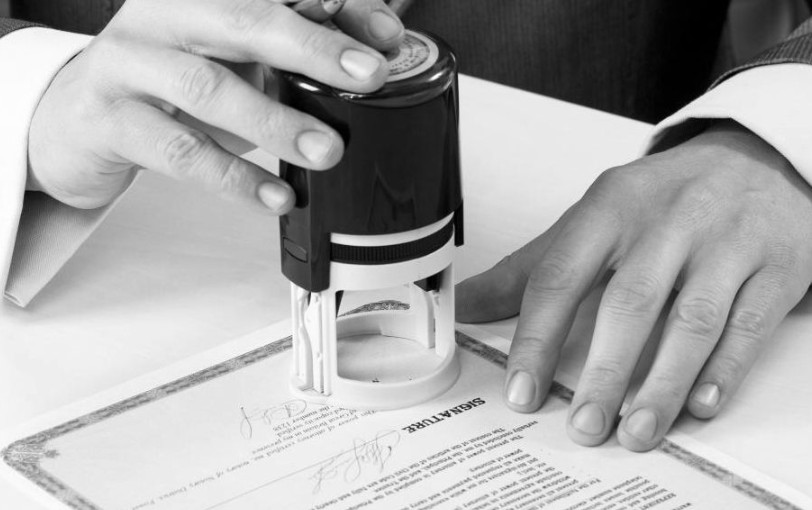
Introduction: Understanding the Role of Defense Attorneys
When facing legal challenges, it is crucial to have skilled professionals who can navigate the complex world of law and protect your rights. Defense attorneys play a vital role in our justice system by representing individuals accused of committing crimes. This article aims to shed light on the importance of defense attorneys, the various types available, and how they work to build a robust defense strategy for their clients.
The Importance of Legal Representation
In the criminal justice system, the accused is innocent until proven guilty. However, without proper legal representation, individuals may find themselves at a significant disadvantage when dealing with the complexities of the legal process. Defense attorneys serve as advocates for their clients, ensuring their rights are protected, and the burden of proof lies on the prosecution.
Types of Defense Attorneys
Defense attorneys specialize in various areas of criminal law to provide the most effective representation for their clients. Some common types of defense attorneys include:
- Public Defenders: These attorneys are provided by the state for individuals who cannot afford private representation.
- Private Defense Attorneys: These attorneys are hired by individuals to represent them throughout the legal proceedings.
- Specialized Defense Attorneys: They focus on specific areas of criminal law, such as DUI defense, white-collar crime, or domestic violence cases.
Building a Strong Defense Strategy
A defense attorney’s primary objective is to build a strong defense strategy that challenges the prosecution’s case. Here are some key elements they consider:
4.1 Gathering Evidence
Defense attorneys thoroughly investigate the case, collecting evidence to support their client’s innocence or create reasonable doubt. They review police reports, gather witness statements, and explore forensic evidence to build a compelling defense.
4.2 Examining Witnesses
Defense attorneys analyze the credibility of witnesses presented by the prosecution. They may conduct interviews, cross-reference statements, and search for inconsistencies that can be used to weaken the prosecution’s case.
4.3 Cross-Examination Techniques
During the trial, defense attorneys employ effective cross-examination techniques to challenge the prosecution’s witnesses. By asking strategic questions and highlighting inconsistencies, they aim to undermine the credibility of the opposing party’s testimony.
4.4 Expert Testimony
In complex cases, defense attorneys may call upon expert witnesses to provide specialized knowledge or analysis. Expert testimonies can help clarify confusing evidence, challenge forensic results, or present alternative interpretations.
The Criminal Trial Process
Understanding the criminal trial process is essential for defendants and their defense attorneys. Let’s explore the key stages involved:
5.1 Arrest and Booking
After an arrest, defendants are booked into the system, providing their personal information, fingerprints, and photographs. Defense attorneys can ensure that the arrest was lawful and that their client’s rights were not violated during this process.
5.2 Arraignment and Plea Bargaining
During the arraignment, defendants are informed of the charges against them and have the opportunity to enter a plea. Defense attorneys negotiate with the prosecution to secure favorable plea bargains if appropriate, considering the strength of the evidence and potential penalties.
5.3 Pre-Trial Motions
Defense attorneys may file pre-trial motions to challenge the admissibility of evidence or dismiss charges based on legal technicalities. These motions can significantly impact the outcome of the case and provide opportunities for the defense.
5.4 Trial
In the trial phase, defense attorneys present their case, including witness testimonies, evidence, and cross-examination of prosecution witnesses. They aim to establish reasonable doubt in the minds of the jury or judge, emphasizing the presumption of innocence.
5.5 Sentencing
If the defendant is found guilty or accepts a plea deal, the court moves to the sentencing phase. Defense attorneys advocate for lenient sentences, presenting mitigating factors and arguing against excessive punishment.
Working with a Defense Attorney: What to Expect
When you hire a defense attorney, certain aspects of the legal process become more manageable. Here’s what you can expect when working with a defense attorney:
6.1 Initial Consultation
During the initial consultation, defense attorneys gather information about the case and assess its strengths and weaknesses. They provide an overview of the legal process, potential outcomes, and available defense strategies.
6.2 Attorney-Client Privilege
Attorney-client privilege ensures that all communication between the client and defense attorney remains confidential. This protection encourages open and honest discussions, allowing attorneys to provide the best possible representation.
6.3 Communication and Updates
Defense attorneys keep their clients informed about the progress of the case, including any new developments, court appearances, or important deadlines. Regular communication ensures that clients are aware of their legal options and can make informed decisions.
6.4 Legal Fees and Billing
Defense attorneys discuss their fee structure and billing arrangements during the initial consultation. They provide transparency regarding costs and work diligently to provide cost-effective representation.
Frequently Asked Questions (FAQs)
7.1 Can I defend myself in court without an attorney?
While it is possible to represent yourself in court, it is generally not advisable. The legal system is complex, and experienced defense attorneys have the knowledge and expertise to navigate its intricacies effectively.
7.2 How long does the criminal trial process typically take?
The duration of a criminal trial varies depending on the complexity of the case, court availability, and other factors. Some trials can be resolved quickly, while others may take months or even years to reach a conclusion.
7.3 What qualifications should I look for in a defense attorney?
When selecting a defense attorney, consider their experience, expertise in the relevant area of law, track record of success, and their ability to communicate effectively and work collaboratively with you.
7.4 How do defense attorneys gather evidence?
Defense attorneys employ various methods to gather evidence, such as reviewing police reports, interviewing witnesses, consulting experts, conducting investigations, and utilizing discovery processes to access prosecution evidence.
7.5 Can a defense attorney help me avoid jail time?
Defense attorneys work tirelessly to protect their clients’ rights and secure the best possible outcome. While avoiding jail time depends on the specific circumstances of the case, defense attorneys can explore alternatives such as plea bargains, reduced charges, or sentencing alternatives.
Conclusion
Defense attorneys play a crucial role in the criminal justice system, safeguarding the rights of individuals accused of crimes. Their expertise, knowledge, and strategic approach are essential for building a strong defense and navigating the complexities of the legal process. By understanding the importance of defense attorneys and working collaboratively with them, individuals can ensure their rights are protected and receive fair treatment within the justice system.
Partner Site : Business Tips , Health News, Future Technology, Home Decorating, Travel Tips, Classic Car, Online Education, Business Law, Women Fashion, Beauty Salon



